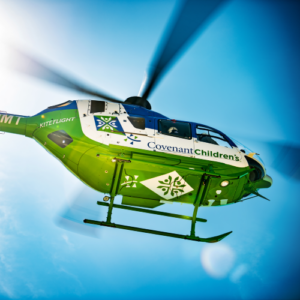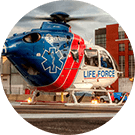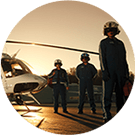Hiking is the ultimate family activity: it’s active, educational and a whole lot of fun. There’s nothing that brings a family together like sharing new experiences, and what better way to do that than to explore every corner of sun-kissed, stunning California?
Like many of life’s worthwhile pursuits, hiking doesn’t come without risk, so it’s important to be prepared. Have you thoroughly researched where you’re going? Do you know what you need to buy and pack to take with you? These are some of the questions you should be asking yourself before you head out for a hike.
These are our top safety tips to help you prepare for your next hiking trip:
- Research your destination
Planning your trip can be half the fun! Doing research as a family can help build excitement for the adventure ahead, while helping everyone to be as organized as possible. It’s important to establish some essential factors including climate, topography, difficulty, directions and vehicle access points. Make sure you check the weather conditions, as some areas can be prone to flash flooding. Also, take note of possible camping sites, notable landmarks and the location of water sources. Nothing ruins a hiking trip like failing to prepare.
- Purchase the right gear
Investing extra money into some quality hiking gear can be a very worthwhile exercise. However, if you’re new to hiking, stepping into a store can be overwhelming! The first thing you should invest in is a good pair of hiking shoes and some thick socks. This will prevent blisters from forming and protect your ankles during your hike, decreasing the risk of injury and discomfort.
Other things to purchase for your trip include[1]:
- Duct tape
- A Polar Pure water purifier
- Hiking poles
- A journal and pen
- A complete water suit
- A wind-up weather band radio
- A forty-degree down sleeping bag
- An inner-frame, lightweight backpack that’s roomy enough for all your essentials.
If you’re planning on camping you’ll need to invest in equipment including: a waterproof tent, sleeping equipment (such as inflatable mattresses or camp cots) and, depending on the length of your stay, cooking equipment and a portable cooler.
- Pack smart
In addition to having the right equipment and tools, you need to pack enough supplies to sustain and protect yourself while hiking. For many destinations, a good place to start is to pack plenty of sunscreen. Additionally, make sure you give plenty of thought to your water and food. It’s recommended to drink at least 1.5 to 2 liters of water in a regular day, so when hiking, you’ll want to double this amount to accommodate for water loss. Look at adding an electrolyte supplement to keep your hydration levels optimal. Snack on high-energy snacks like trail mix (pre-packaged or homemade and stored in snack bags), dried fruit, jerky, granola bars, nuts and crackers. Larger meal options include bagels, sandwiches, instant hot cereals and pasta.
It’s a good idea to pack more than you need. It’s better to be overprepared than underprepared! Accidents can happen so make sure that you always account for this by packing a first aid kit, warm clothes and extra water in case you’re caught out for longer than you plan to be.
- Know your nearest medical facility
Knowing where the nearest medical facility to your hiking destination is can help you to be fully prepared. For major emergencies that require emergency air transport, AirMedCare Network has you covered. Search our service area map before you head out, so that you can enjoy your hike knowing you’re protected.
Learn how we can help you be prepared.
[1] Source: https://www.active.com/outdoors/articles/new-to-hiking-top-10-must-haves

Prepare for Travel with Expert Pre-travel Health Tips
Pre-travel health care is important for both domestic and international trips. It helps ensure you are ready to handle any common health problems that might

Neonatal Intensive Care – Be prepared for baby with this important information.
Having a child can be both exciting and a little scary. New parents want to be ready for their baby’s arrival and make sure they

Snowbirds and Expats Should Consider Air Medical Membership
Each year, millions of Americans spend the winter months in sunnier locales like Florida, Nevada and Arizona. Unfortunately, illness or injury during travel can lead




